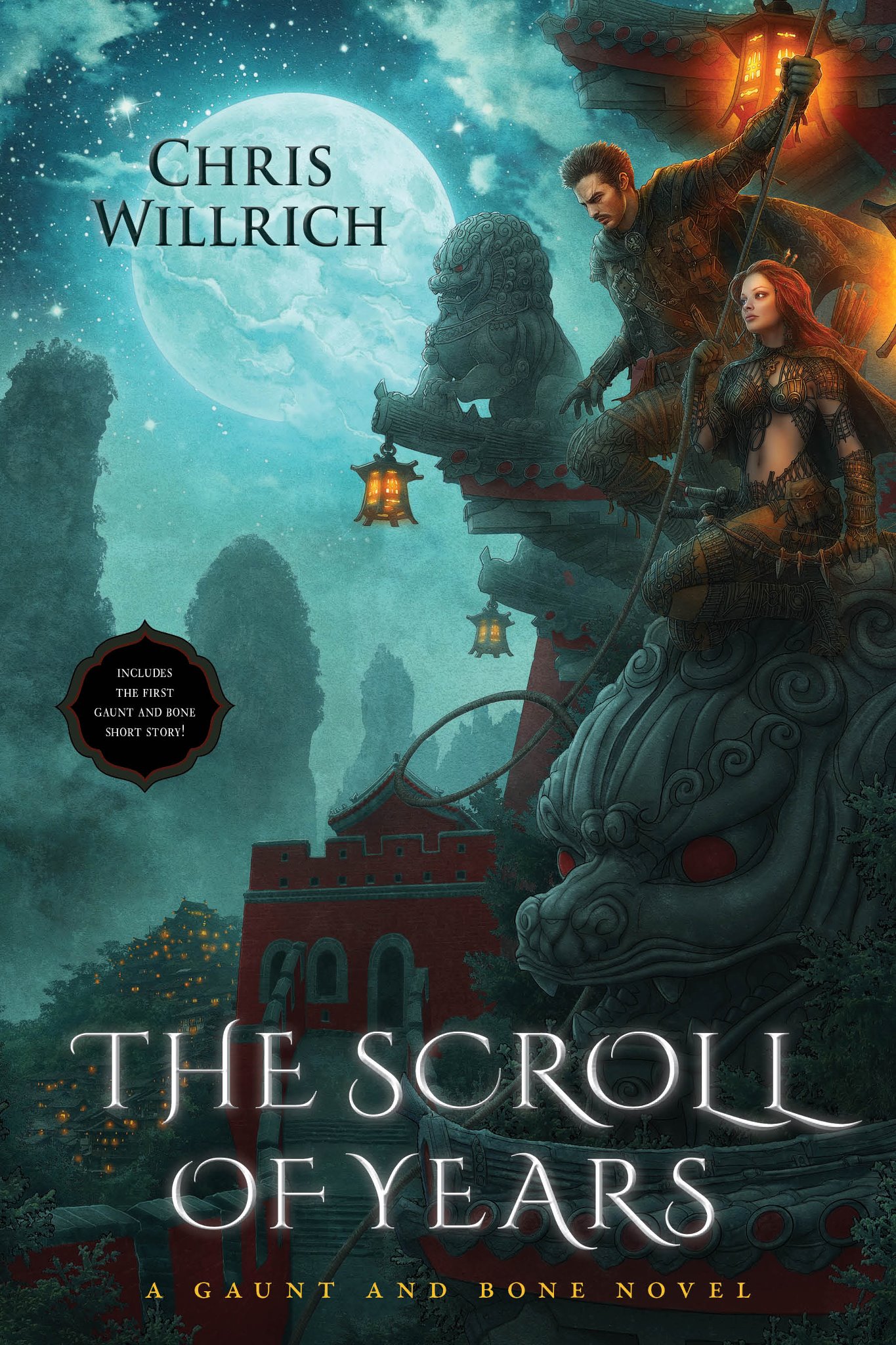Having finished The Scroll of Years by Chris Willrich only moments ago, I hereby judge that it is not an average, everyday book. By that I mean it is not about a cast of characters placed in stories and committed to the written word.
Instead, Willrich has written a magical invitation to peruse a series of bound pages where, by happy chance, fantastic figures’ own paths direct them to travel back and forth in this specific vicinity…and they happen to have been captured by a sensitive translator.
My ruling on The Scroll of Years is based on many things, but foremost the structure of the book. Willrich’s debut novel is comprised of long and short chapters, tales within tales, and shifts in time, location, culture, perspective, and language. The result is deceptive: the simple exterior of a fantasy softcover hides an interior that is a complex literary work. This book insistently demands that any prospective reader thrust away their grasp of linear tale telling as a prerequisite to jumping into this adventure.
I will not mince words: This is not a book everyone will enjoy. The protagonists travel an entire world of territory, and the stories told are drawn from every major occurrence of a human lifetime. I found it difficult at times to catch up again after putting it down, as if somehow the story had continued to evolve while I wasn’t actively reading it.
To enjoy the work, I suggest that you be a reader who can be dropped without warning or explanation onto the back of a Springfang, into a bottomless pit, or through the portal of scholarly monastic life. This is not a book for any reader requiring reason or exposition. Persistent readers will find some of each inside this novel, but it will be wrapped carefully and carried next to a character’s true heart.
The Scroll of Years is a collection of tales about persons generally meeting the modern definition of “westerners” and “easterners.” The travels and antics of the characters are guides or perhaps crutches, for the reader seeking wisdom about an astonishing range of life experiences. From the book, readers can steal treasures about true growing up, forgiveness, partnership in love, parenting, and even coming to peace with our own flawed selves.
The thrilling cover illustration of high-fantasy artwork, and Willrich’s own description of the novel as “sword and sorcery” does the book an injustice. I believe it is well beyond what the traditional fantasy novel has provided. The Scroll of Years is more than one rich world-building adventure; it is easily three or perhaps, lucky seven. Characters go beyond the traditional troupe of scout, fighter, thief, wizard, and cleric, to include the avocations of monks, politicians, assassins, poets, mothers, fathers, adolescents, emperors, dragons, walls, ways, ghosts, vampires, accountants, sailors, outcasts, and even a loyal log-chasing dog.
What I enjoyed about the novel was being tossed into a wonderful new way to use language. Willrich has invented novel techniques for dialog and storytelling that derive from opposites. His writing incorporates east and west, man-on-the-street and sage, human and animal, child and adult. I can only describe my reaction toward writing so completely new and different as similar to how I felt reading Gibson’s cyberpunk for the first time. Reading this book is likely to cause a disturbance in your Chi, but channeling will reward the reader tenfold.
What I had to overcome to enjoy the book was the idea that I was picking up a recreational-fantasy drug. This book requires attention, commitment, and participation from its readers. If you allow it, this book can teach you more than a little bit about life’s biggest lessons. To the inattentive, I imagine this book is just a muddied flood that will wash over you, scrape you up with pointed words, and carry you away, without ever allowing you to plumb its depths of meaning.

What do you think?